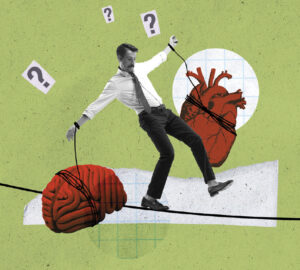So, it’s another new year. You know what that means: resolutions. And while we have the best intentions, somehow we find ourselves making the same promises year after year. Topping the list are weight loss, exercise and losing those bad habits. Even if it didn’t take last time, there is renewed hope for this year!
[kicking those habits]
Jan. 1 has arrived.
You know, the day to give up (check all that apply):
> nail biting
> drinking
> late-night snacking
> knuckle cracking
> smoking
> hair twirling
and any number of other behaviors that annoy you (and your family!)
when does it become a bad habit?
“It’s a subjective issue,” says Dr. Abraham Medaris, a psychiatrist who treats addictions at CenterPointe Hospital. “Things like biting your fingernails and cracking your knuckles fall into bad habits if they bother you or people around you.” But if you’ve ever had one, you know that habits can take on lives of their own. “In the brain there are physical connections, neurons that branch out and touch each other in circuits,” he explains. “The more you use a circuit, the stronger it becomes.”
out, damn spot!
Banishing a habit may not be easy, Medaris says. “Contemplation—thinking about making a change—is step one. When people keep telling you it grosses them out when you bite your fingernails, you start to see the merits of making a change.” Then, he says, one must plan for distinguishing the habit and take action. If the action plan succeeds, one enters a long phase of maintenance. “This is a particularly challenging phase. Very commonly with smoking or dieting, something stressful will happen and you go back,” Medaris says. “Relapse is easy because that pathway in the brain is still there, and it is a path of least resistance. It’s a predictable stage, and it’s where most people get stuck. What is freeing is to understand that relapse is predictable and not a place to quit. It is a place to minimize and then get back into action or maintenance.”
tackling addiction
Addictions—harmful activities that stimulate the brain to reward and crave them—can touch anyone. “It is no respecter of persons. I have known clergy, physicians, bank CEOs and very successful people who develop dependence,” Medaris says. “Our brain has a system to help us repeat behaviors that are helpful, like eating,” he continues. “When we eat something we enjoy, that lights up part of the brain. It is an important pathway, but sometimes it is hijacked by things that aren’t good for us.” That’s where harmful substances come in. Alcohol and opiates can be particularly addicting, says Percy Menzies, president of the Assisted Recovery Centers of America. “Addictions almost invariably continue to increase because the neurons get desensitized in the part of the brain where the addiction occurs,” he says. “Alcohol or heroin activates regions of the brain called receptors. Those receptors are over-stimulated and become less sensitive. They need an escalating dose just to feel normal.”
you need help!
About 21.6 million people in the U.S. are abusing or dependent on drugs or alcohol, according to the U.S. Substance Abuse and Mental Health Services Administration. An estimated 66.9 million are believed to be tobacco users. Heredity can increase the risk for addiction, Menzies says. “Studies are finding that 8 to 10 percent of the population has genes that expose them to addiction.” And people ready to get well should seek professional help, he adds. “They should not expect to get well through their own will power. It should be treated like any chronic illness.” His program medically detoxes patients by using drugs that block the alcohol or opiate from activating the brain. “This prevents the ‘high’ from occurring, and the healing process also includes behavior modification because we are creatures of conditioning,” he explains. Treatment may last a few weeks to a few months and can be covered by medical insurance, Menzies says. “If you do not use drugs for six months, you can truly feel you have achieved your goal. We tell people they should not give up hope.”
[just weight till 2015]
Why don’t we just call this one the perennial resolution? Is there anyone out there who doesn’t include weight loss on their New Year’s resolution list?
re-frame the issue
Perhaps we’ve been going about it all wrong. It’s not just about diet and exercise. It’s about frame of mind, says Teresa Scott Syed, president and owner of OneLife Weight Loss & Wellness Solutions. “We need to reframe how we look at it,” she says. “Make it a lifestyle change, a total package. Losing weight is just the first step. Recognize that it is first about being healthy. Beauty is a by-product of that.” And it certainly isn’t about the latest quick-fix diet, adds Dr. Steven Willey.” It seems that every few months my patients tell me about some new ‘breakthrough’ way to shed a few pounds,” he says. “But there’s no point in losing buckets of weight on a fad diet, only to pile it all back on.”
food as self-medication
Figuring out the roles that stress and food play in your life is a step toward creating your fitness plan, Syed says. “Many of us turn to food to self-medicate for the pain, stress, frustration and anxiety in our lives. You have to get a handle on stress management, then work on understanding your emotional relationship to food.” Syed recommends fruits, vegetables, minimal carbs and proteins several times a day. “Cut down but don’t exclude fat, and drink plenty of water so your system can naturally flush itself out,” she says. “Plan your meals and cook at home so you’re not eating fast food on the run.”
planning & pleasure
Insulin is usually mentioned in association with diabetes, but in reality it is a very helpful hormone that regulates energy use throughout the body. “We all have insulin,” says Willey, who has devised a program to optimize insulin efficiency. “But we don’t want more of it floating around than we need.”
He advises patients to minimize carbohydrates in order to maintain a modest insulin level. “I recommend that you have a ratio of protein to carbohydrate on your plate. Your protein portion ought to be about the size of your whole hand, and the sum total of all your starches, including bread before dinner, should be about the size of the palm of your hand. A fruit and veggie should be in every meal.”
By following those general rules, he says, “You do all the things you need for those hormones without having to think about it very much. I don’t say you should never have a particular food. Restricting the diet too much means no one is going to be able to stick to the plan. I am willing to sacrifice a little bit of perfection to get compliance.”
add exercise
Movement, as much as your body can handle, must be part of any weight loss plan, Syed says. “You have to incorporate movement and fitness, even if that means nothing more than walking and using the stairs instead of the elevator.” And don’t neglect to resistance training, which builds muscle, Willey adds. “To keep our insulin metabolism as efficient as possible, the physiology of the human body requires resistance exercise.” He recommends three workouts a week, each about an hour long. After 20 minutes of aerobic exercise he suggests intense resistance training. “Divide the body into three groups and really challenge each group once a week.” Syed sums up the formula most likely to have staying power: “It’s not just about losing weight. It’s being fit in mind and body.”
[getting your zzzz’s]
It’s hard to believe that with all the other health hazards out there, sleep deprivation is “a public health epidemic.” Yet it is, according to the U.S. Centers for Disease Control and Prevention. So what can we do about it?
to sleep, perchance to dream
It’s the most natural thing in the world, but modern man can’t see to master sleep. About 35 percent of Americans get less than the recommended seven hours of nightly sleep, and snoring, a sign of poor sleep, is reported by 48 percent of the population. “To most people, sleep is the last thing on their to-do list after a busy day,” says Dr. Oscar Schwartz, director of the Barnes-Jewish West County Hospital Sleep Center. “People devalue a good night sleep’s contribution to making sure they have a good day.”
The benefits are better daytime function, better immune function and an improved ability to stay fit, explains Dr. Joseph M. Ojile, medical director of Clayton Sleep Institute. And if weight loss is on your 2015 resolutions agenda, “Sleeping better will make your workouts and diet program more effective.”
quantifiable hazards
“Sleep insufficiency (is) linked to motor vehicle crashes, industrial disasters and other occupational errors,” according to the CDC. “Persons experiencing chronic sleep insufficiency also are more likely to suffer from chronic diseases such as hypertension, diabetes, depression and obesity, as well as from cancer, increased mortality and reduced quality of life and productivity.”
The brain works furiously all day and requires maintenance overnight. “The body regulates itself during sleep—the central nervous system, endocrine functions, the blood vessels, the hormones that help us stay healthy and regenerate from the day,” Schwartz says. “There are chemicals in the brain that can become abnormal with insufficient amounts of sleep.”
Lack of sleep allows stress hormones to accumulate, he adds. “When people are tired, they have a higher incidence of cardiovascular disease because there are more things such as epinephrine and adrenaline floating around.”
restful recipe
“We want consistency,” Ojile says. “Go to bed around the same time and get up around the same time.” And allow time to unwind. “If you don’t have calming activity it will be harder to fall asleep and stay asleep,” Schwartz says. “You should do something as simple as listen to music or read something that is non-engaging.”
And, Ojile adds, “Get the technology out of the bedroom.” Sleep preparations should begin early.”At least eight hours before going to bed, stop drinking caffeine,” Schwartz says. “If you have wine or alcohol with dinner, allow two to three hours for the body to rid itself of the alcohol. Alcohol changes the sleep pattern, so a drink before bed is not a good idea. Neither is eating a meal that is heavy, spicy or high in fat. That will make it harder to fall asleep or stay asleep.”
Whatever you do, the experts say not to underestimate the importance of a good night’s sleep. “Some patients feel a marked improvement in their overall sense of well-being,” Ojile says. “One told us he felt like he had gone from a black-and-white world to a Technicolor one.”








